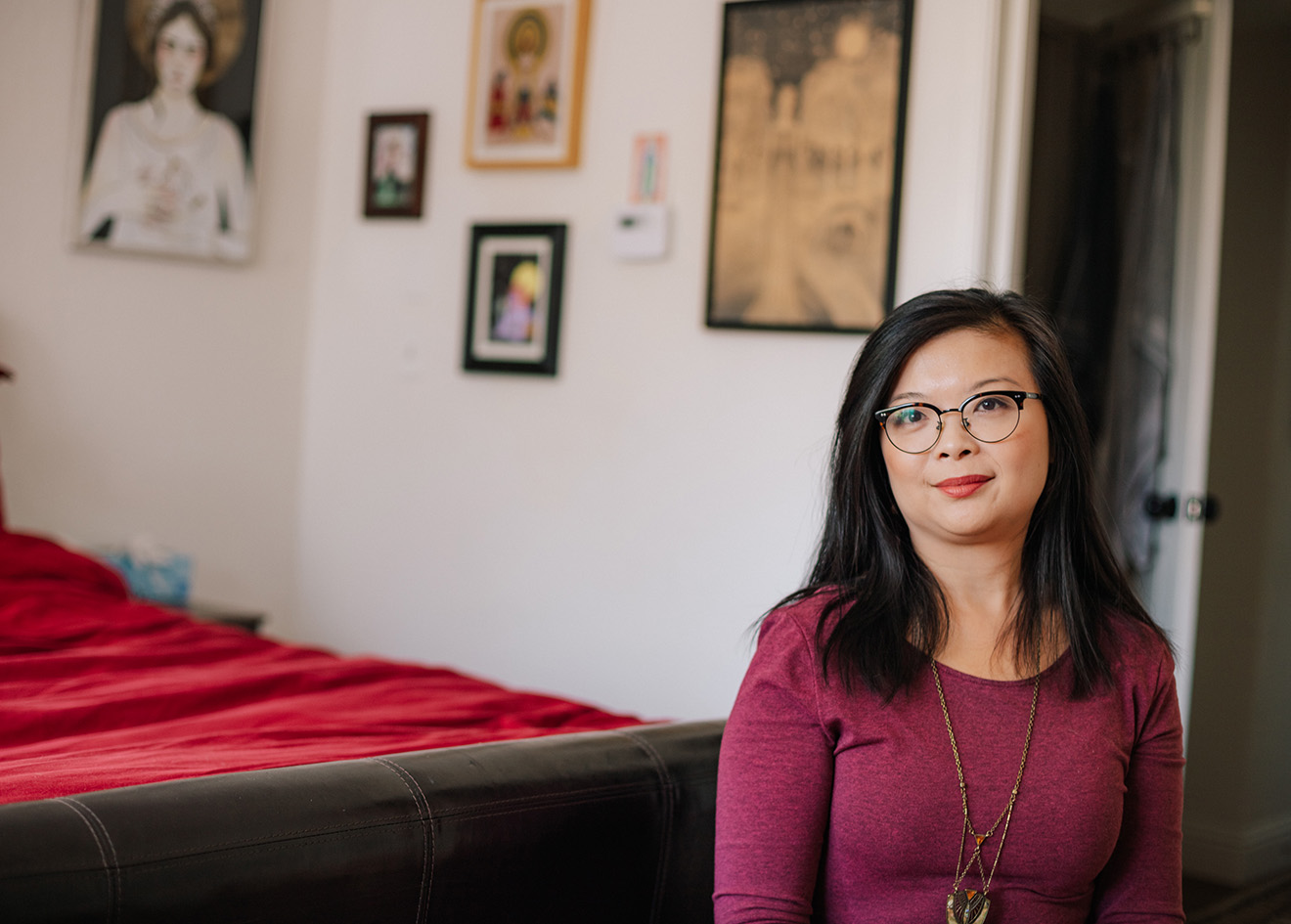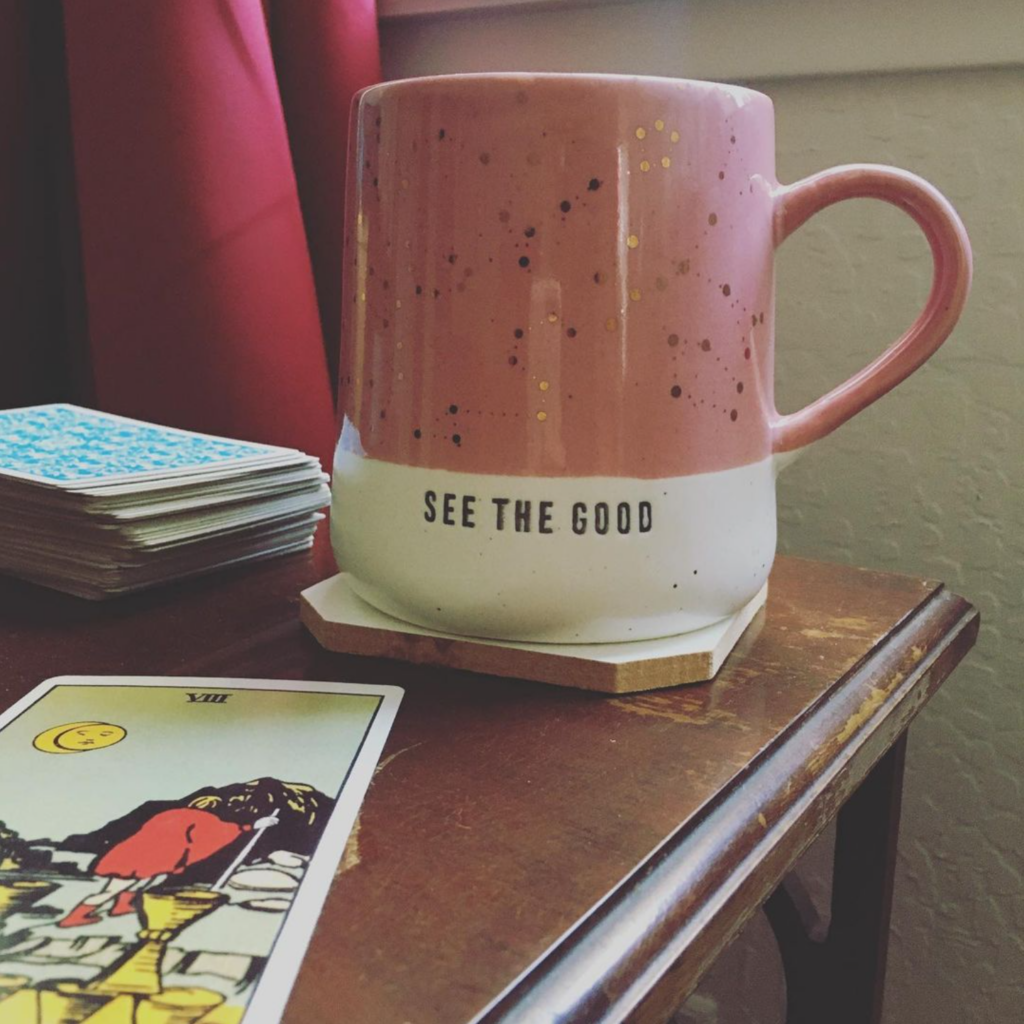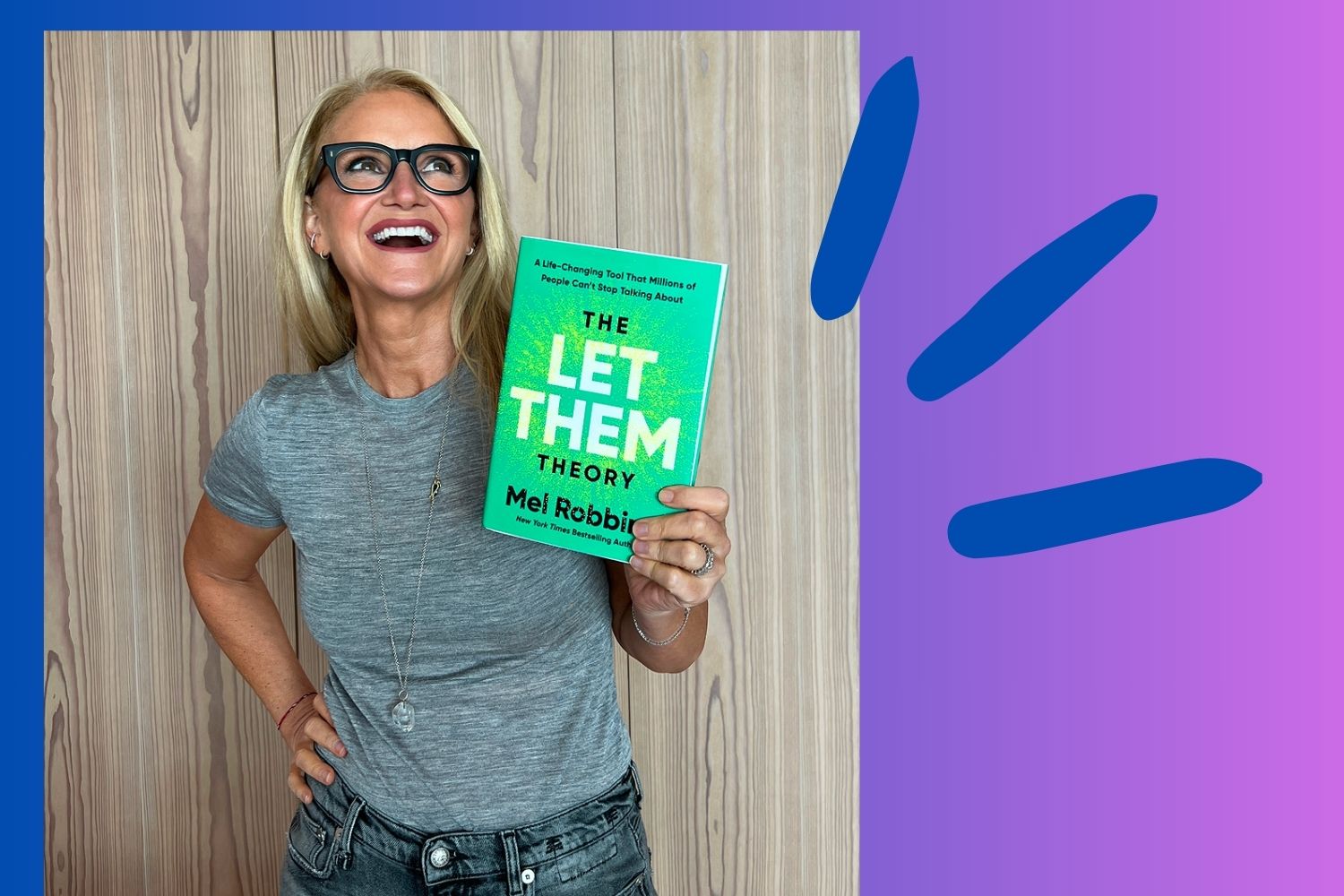
How I stopped rebelling against my aging parents in my 40s
“Bonnie, buy me coffee!” my mom demands in Cantonese from the back seat of the minivan. It was a warm August day in Connecticut. I had just introduced my partner to my parents two hours ago in Queens, New York, where they picked us up from my partner’s brother’s house. After a pee break and quick hellos, my dad handed me the keys and said, “Here, you drive.” Despite having not seen my parents in person for almost a year, my adult-daughterly duties were quickly reinstated.
We were headed to Boston to visit my sister and her family. With my partner in the passenger seat and my parents in the back, we began driving north. A traffic jam heralded the distribution of boxes of fried rice my mom had prepared for us all. My partner knew this was his first chance to impress them. As he ate his fried rice, he made yummy noises, you know… “MMMMmmmMMM! This is soooo goooood!” We had watched The Joy Luck Club in preparation for our trip to meet the parents. He knew the rules:
- DO NOT pour soy sauce over their dishes.
- DO say their food is yummy.
How to catch yourself from falling for an old codependent trap
My belly now full of fried rice, I was ready for caffeine. I announced to everyone that I was stopping for coffee. For a moment, I expected retaliation. Being in my parents’ van, I reverted to the 9-year-old me waiting to hear the canned parental road trip retort — “No, we gotta keep driving.” I snapped out of it a few seconds later when I realized I’m the one driving the car — I’m the adult, and I get to call the shots!
As we drove to Starbucks, my mom chronicled the last time my sister bought her coffee at Starbucks — how delicious it was. Per usual, she didn’t know which drink it was, but acclaimed it as very tasty and fragrant. She wanted me to buy her a cup of coffee. Her slightly childlike inflection is one she uses with me at times. Just like when a child sweetly asks a parent for a toy or candy, her tone signaled our switch in parent-child roles.
At the time, all I could hear was my mom touting my sister’s most excellent coffee-buying skills, triggering a subconscious need to please and impress. The mom-winning coffee pops into my head: an Almondmilk Honey Flat White.
We order our coffees and my partner pays. We had discussed that my mom doesn’t like cheap, ungenerous men, and so he was prepared to whip out his credit card on the trip. We get our coffees and my mom tries her Almondmilk Honey Flat White; she’s unimpressed. My sister’s coffee had a stronger coffee fragrance. This doesn’t have enough coffee flavor. I misunderstood her needs.
In the past, I would have been upset, but that day I quickly identified that I’d fallen into a classic trap. I wanted to impress, but then realized I had set myself up to feel like I’m not good enough. Plus, this is my mom’s schtick with me and my siblings. My sister buys excellent coffee, I buy excellent tacos, and my brother buys excellent Italian food. But if my brother tries to buy her tacos, it’s crap in comparison to what Bonnie buys her in San Francisco. It’s just how she compartmentalizes her kids, I suppose.
Why you need to set boundaries with your parents before the relationship can begin anew
Weeks later, I realized what my mom was really asking for when she asked me for the cup of coffee. Lost in my own agenda of impressing her with a new partner in tow while managing my own triggers, I misunderstood what she wanted when she asked me to buy her coffee: connection and affection.
For a long time, going home meant bracing to be triggered. As Ram Das said, “If you think you’re enlightened, go spend a week with your family.” Every time I go home, I test my spiritual strength. Over the past few years, I’ve come to realize my current spiritual test begs this question: Can I accept my parents for who they are? Can I let go of trying to change them?
As a kid, I wanted different parents. I would watch the Brady Bunch and wonder why my parents weren’t nice and loving like Mr. and Mrs. Brady. Why didn’t my parents listen to me? Even when there was conflict in the Brady family, there was always resolution and a hug at the end of the episode. Why was there never resolution and a hug in my family? Instead, there was shouting, spankings, cold shoulders, and the silent treatments. For a long time, I blamed it on being in a Chinese family. Chinese people don’t do that lovey dovey stuff. Later in life I found out that not all white people had a family like the Bradys’ either.

Sitting in my childhood room as a 41-year-old, there was something about the stillness among the years gone by — the dust on my stuffed animals, the untouched yearbooks and the distinctive smell of your parents’ house that brings you back in time, yet whilst still being you.
It was like I could sift through the timeline of all the times I came home through the ages, while it all simultaneously converged at once. In the last 23 years of coming home, I’ve never felt so settled with myself and who I am. I had been rebelling my parents for so long — and honestly, I’m tired. Every time I came home I had my defenses up, wanting to ensure my individuality was intact. I had been fighting my softness, my simplicity, my desire to care and be cared for, and my Chinese-ness for over 20 years. I think, maybe, I’m ready to begin to let it go.
Don’t get me wrong. I needed to fight all those years. If I hadn’t fought I would have been sucked into a black hole of obligation, rules, nagging, force, and tradition. I had to fight in order to process my own individuation. In that process, I think my parents learned a thing or two, too. That’s the beauty of boundaries. When we set boundaries for ourselves, we not only gain our own empowerment, but we also encourage others to see where they’re overstepping.
Allowing your parents to love you in their own way
As we lay on the extra firm, full-sized bed from my childhood, my partner said to me, “Your parents have been so generous to us.” That’s just them, I thought. They’ve always been this generous. And in that moment something shifted for me. Through his eyes, I could see what I’ve taken for granted, and even rejected for a good chunk of time. Their generosity was the way they showed their love. But since it wasn’t the way I wanted the love or expected the love to come through, I wouldn’t accept it. I thought because they didn’t affirm me in the way I wanted or give me constant affection, they must not love me.
In my childhood, I couldn’t see that my parents had their own love language. My mom showed love through making us an after-school snack, allowing us to buy silly knick knacks on our trips to Hong Kong, and getting us the latest juice box flavors. We were the first kids at school to bring Lunchables when it first debuted in 1989 — that was pretty cool. And my dad would bring us the latest bootleg movies and video game systems on his business trips to Hong Kong, and would plan family road trips to amusement parks.
It didn’t occur to me until now, as I face the possibility of motherhood, that they didn’t do those things for themselves. (Well, maybe a bit). But they did it because they wanted to be good to us, in their own way. It was their way of loving us, but I couldn’t see it in the fog of all the “bad.”
When I go home now, they show their love in much of the same way. Feed us copious amounts of food, try and give me the most random stuff. Costco-size packs of dishwashing gloves, heavily discounted shoes from Nordstrom Rack, a battery kit for my car in case it doesn’t start. For a long time, I found it annoying and thought they were trying to impose their way on me. There’s still a bit of that. I still don’t want anything from my mom’s jade collection and will say “no thanks” to a purse that’s not my jam. But I don’t get triggered by it anymore because I know, it’s just her way — her love language. Can I accept her love and be open to receiving it, even though it’s not the way I wanted it? I’ll keep trying.
Don’t try to be your parents’ therapist
Even with this realization, we’re obviously still not some idyllic perfect TV family. There is still shouting, nagging, and cold shoulders. If it were anyone else, I would have unfriended them long ago. But as I’ve realized for myself, I can avoid my parents, but they’re not so truly awful for me to unfriend them forever. I honestly believe they are my parents for a reason; experiences I underwent to learn to empower myself and now, to open my heart. Even as I ran away, I knew at some point I had to go home. I had to reconcile.
As someone who has been on a journey to heal for a while, I try to stay disciplined in seeing that when others lash out, it’s their own suppressed trauma, grief, and pain knocking at the door. It’s a tricky balance: maintaining the awareness that their behavior doesn’t have to do with me because they are reacting to whatever old pain is triggered for them; having compassion for the fact that they are human and doing the best they can; and then not taking their pain as something I have to help them fix.
When my parents lash out, or react strongly to my actions, the spiritual counselor in me wants to say — can’t you see you’re trapped in your own pain? But I know, it’s actually none of my business. We all do our own healing, and as their daughter, I’m not the appropriate person to point it out to them; I can’t be their healer. We think we’re making them better people by telling them what they should or should not do, but it’s the same as them telling us how to live our lives. Ultimately, deep down, all I want from my parents is acceptance of me and who I am, imperfections and all. Perhaps that’s what they want from me as well.
Sorry, the comment form is closed at this time.




Lynns
Beautiful story. Thank you for writing.